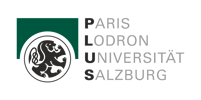Assoc. Prof. Dr. Corinna Peil
Deputy Head of the Division Center for ICT&S
Faculty Representative for Mid-Level Academic Staff, Faculty of Social Sciences
Editor-in-Chief, kommunikation.medien

Room: 1st floor, Sigmund-Haffner-Gasse 18, 5020 Salzburg
Office hours: by appointment
Phone: +43-662-8044-4814
Mail: Corinna.Peil@plus.ac.at
Dr. Corinna Peil is a Associate Professor at the Center for ICT&S Division at Salzburg’s Department of Communication Studies. After studying communication studies as well as film and television studies at the Ruhr-Universität Bochum and the Université Libre de Bruxelles, she earned her doctorate in cultural studies at Leuphana University Lüneburg with a thesis on mobile communication in Japan. Before coming to Salzburg, Corinna Peil spent several years researching the domestication of the Internet and the mediatized home in projects funded by the German Research Foundation under the direction of Prof. Dr. Jutta Röser.As a visiting scholar, Corinna Peil has worked at various universities, including Klagenfurt, Münster, Regensburg, Rome and Tokyo. Her research and teaching focus includes topics such as media (de)convergence, mobile media cultures, Internet of Things, mediatization processes, and digital media communication in everyday contexts. Since 2012, Corinna Peil has been responsible for editing the open access journal kommunikation.medien, managed and published by master’s students as part of a teaching project.
- (De-)Convergence Cultures
- Internet of Things
- Digitale Resilienz
- Mobile Communication
- Digital media communication in everyday contexts
- Mediatisation Processes
- New media in history and the present
- Association of Internet Researchers (AoIR)
- International Association for Media and Communication Research (IAMCR)
- European Research and Education Association (ECREA)
- Österreichische Gesellschaft für Kommunikationswissenschaft (ÖGK); seit 2018 im Vorstand
- German Society for Journalism and Communication Studies (DGPuK); since 2019 co-spokesperson of the DGPuK specialist group Media, Public Sphere and Gender.
Die aktuelle Forschungsdokumentation findet sich hier.
Notes on Master’s examinations with Dr. Corinna Peil (as of Jan. 2021)
Here are the following instructions for download.
Examination topics
In principle, I examine in the subject area “Communication in Culture and Society”. The following main topics can be chosen:
Mobile Communication
Internet of Things
History of the Internet
Examination literature
The examination literature has a total length of 150-200 pages. A literature list is available for the main topics; however, individual texts can be exchanged after consultation with the examiner if you would like to make your own suggestions.
Exam preparation
Six to eight weeks before the planned examination date (examinations are usually held on Mondays during the lecture period), an appointment should be made with the exam candidate and the examiner to determine the date, topic and examination literature.
The examination candidate prepares for the examination by preparing an examination paper and an annotated bibliography of the examination literature. Both must be sent to the examiner by e-mail one week before the examination date.
The examination paper contains an outline of the topic on 1-2 pages based on the examination literature read; the individual outline points should be filled in with key points and, if necessary, literature references. The more precise and substantial the examination paper is, the more predictable the examination will be!
The annotated bibliography comprises a concise abstract (possibly in key words) on the individual texts of the examination literature (approx. half a page per article), which reflects the essential findings and refers to the corresponding bullet point in the examination paper.
It is recommended to prepare the exam as a kind of lecture, whereby one should be flexible within the topic in order to be able to respond specifically to questions.
Examination procedure
The examination performance consists of the preparations (examination paper, annotated bibliography) and the examination itself. The examination takes place as a kind of professional discussion at eye level. During the examination, care should be taken to present the individual topics in a structured manner and to distinguish important aspects from secondary aspects. For an above-average examination, a problem-oriented discussion is (also) required (e.g. criticism of previous research or establishing a reference to current developments); if necessary, a corresponding thesis can be formulated on the examination paper.

